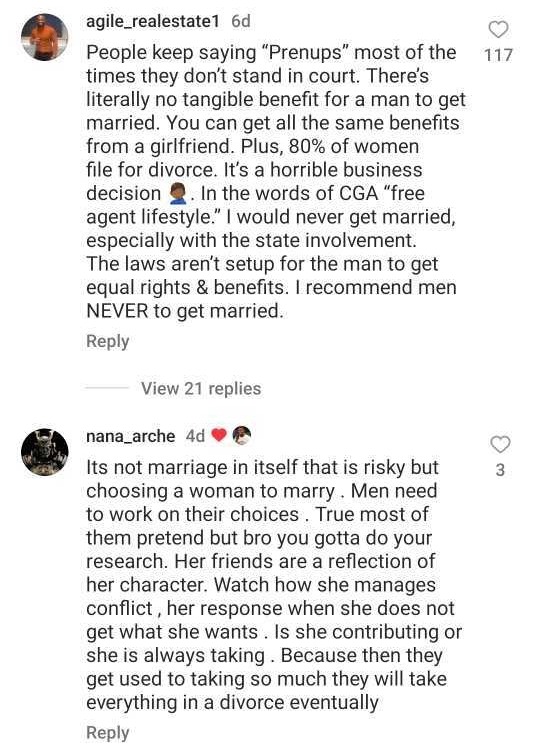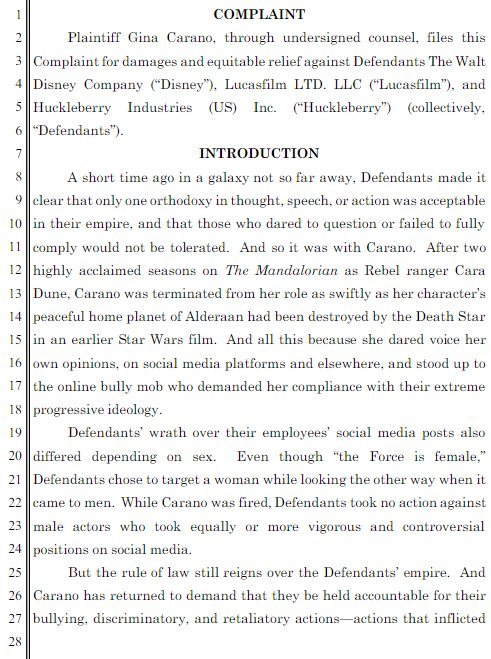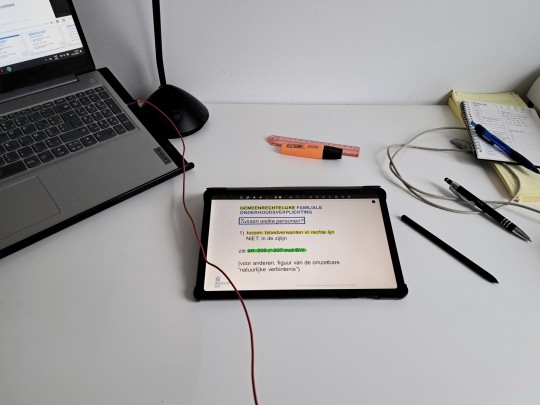#family law
Explore tagged Tumblr posts
Text


19.11.24 — tuesday
i’m aware most of my study desk looks the same but it is the same subject 😭 family law
— anyways, completed hindu marriage laws and by tomorrow i will complete the rest as well
let’s achieve our goals for today ! 💌
#studyblr#academia#study blog#student life#studyspo#study motivation#college#study aesthetic#collegelife#study inspiration#study space#study notes#catedemia#law studyblr#study#studyspiration#academic validation#student#study inspo#studying#uni life#university#academia aesthetic#law student#study tips#law studies#law school#lawyer#family law#study desk
213 notes
·
View notes
Text























Jewel Staite for Gloss Boudoir, June 17, 2024
#Jewel Staite#Gloss Boudoir#Firefly#Serenity#Kaylee Frye#Family Law#Stargate: Atlantis#The Magicians#Space Cases
120 notes
·
View notes
Text






this year i learned that there's a thing called "permanent alimony" (support paid to the lesser-earning spouse until the death of the payor, the death of the recipient, or the remarriage of the recipient). that alone is reason to NOT get married. nahhhh.
#social issues#marriage#divorce#marriage risks#relationship challenges#marriage pitfalls#financial risks#post-divorce struggles#family law#marital concerns#divorce settlement#marriage advice
334 notes
·
View notes
Text


62 notes
·
View notes
Text

Ok, but Gina Carano’s lawyers literally introducing her lawsuit against Disney in the form of the Star Wars opening scroll is grounds for legal malpractice alone.
#Disney#star wars#sw#the mandalorian#baby yoda#pedro pascal#cara dune#politics#democrats#republicans#family law
70 notes
·
View notes
Text




27 notes
·
View notes
Text




Family Law (2021 - )
18 notes
·
View notes
Text


8.12.2023
Family law. Chapter 4, part 4: Alimony.
🎧 ZEROBASEONE - Good Night
#studyblr#me#lawblr#studying#student#study#law#music#study music#spotify#notes#samsung tab s6 lite#samsung notes#family law#exams#ZEROBASONE#good night#song#kpop
33 notes
·
View notes
Text
Sunday, January 19, 2024 Canadian TV Listings (Times Eastern)
WHERE CAN I FIND THOSE PREMIERES?: THE HUNTING PARTY (CityTV) 7:00pm
NEW TO AMAZON PRIME CANADA/CBC GEM/CRAVE TV/DISNEY + STAR/NETFLIX CANADA:
AMAZON PRIME CANADA MOMMY
GRAND SLAM OF CURLING (SN) 12:00pm: Masters - Men’s Final (SN) 4:30pm: Masters - Women's Final
PWHL HOCKEY (TSN3) 1:00pm: Charge vs. Victoire
NHL HOCKEY (TSN5) 3:00pm: Sens vs. Devils (TSN2) 7:00pm: Rangers vs. Habs (SN) 8:00pm: Red Wings vs. Stars
NFL FOOTBALL (TSN/TSN4/TSN5) 3:30pm: Divisional Round - Rams vs. Eagles (TSN/TSN4) 6:30pm: Divisional Round - Ravens vs. Bills
NBA BASKETBALL (SN1) 6:00pm: Nuggets vs. Magic (SN1) 9:00pm: Lakers vs. Clippers
2025 AUSTRALIAN OPEN TENNIS (TSN3/TSN5) 7:00pm: Round of 16
THE GREAT BRITISH BAKING SHOW (CBC) 7:00pm: Proofing makes perfect as contestants mix and knead their dough into cottage loaves, cream-and-jam Devonshire splits and artfully braided centerpieces.
CRIME BEAT (Global) 7:00pm: 'Die Like the Rest' Part 2
FAMILY LAW (Global) 8:00pm: Abby represents an environmental activist whose devotion to the cause might cost him custody of his children; an ill-advised meeting with old flame Crystal Steele lands Harry in trouble with the Law Society.
WARDENS OF THE NORTH (CTV Wild) 8:00pm: A hunter who mistakenly takes down an antlered elk must face the consequences; a warden must come down hard on an ORV hunter who is skirting the law; a warden investigates a hunter on private property.
SKYMED (CBC) 9:00pm: A film crew follows the team, causing tension; Stef and Chopper handle a tough call and must break protocol, creating more stress for the group.
WHEN CALLS THE HEART (Super Channel Heart & Home) 9:00pm: Elizabeth and Nathan uncover Oliver's secret; Rosemary worries Lee has a secret of his own; Allie's interest is piqued when Earl Wyatt returns to town.
ROCKY MOUNTAIN WRECKERS (CTV) 10:00pm (SERIES PREMIERE): A semi bursts into flames, pushing Jesse and crew to make an urgent recovery; Mountain Recovery fights to free a jackknife during a big storm.
THE CURSE OF OAK ISLAND (History Channel Canada) 10:00pm: After more than a dozen years of searching, the team may have discovered the legendary Chappell Vault.
#cdntv#cancon#canadian tv#canadian tv listings#the great british baking show#crime beat#family law#wardens of the north#skymed#when calls the heart#the curse of oak island#curling#pwhl hockey#nfl football#nba basketball#nhl hockey#tennis
3 notes
·
View notes
Text
👰⚡🤵 Πολύ σημαντική επιτυχία του δικηγορικού μας γραφείου σε υπόθεση Οικογενειακού Δικαίου!!

Πολύ σημαντική επιτυχία του δικηγορικού μας γραφείου σε υπόθεση Οικογενειακού Δικαίου!!
⚖️ Το Μονομελές Πρωτοδικείο Θεσσαλονίκης έκανε δεκτή την αίτησή μας, ανακαλώντας προηγούμενη απόφασή του με την οποία είχε αφαιρεθεί από τον εντολέα μας η άσκηση του συνόλου της γονικής μέριμνας της ανήλικης κόρης του εξαιτίας της χρήσης ναρκωτικών.
🏛️ Το Δικαστήριο έκρινε ότι από το χρόνο αφαίρεσης της γονικής μέριμνας επήλθε μεταβολή των συνθηκών,διότι ο αιτών-εντολέας μου έχει διακόψει πλέον τη χρήση ναρκωτικών ουσιών, ολοκλήρωσε το θεραπευτικό πρόγραμμα απεξάρτησης του ΚΕΘΕΑ και έχει ενταχθεί στο ευρύτερο κοινωνικό σύνολο.
✍ Για τους λόγους αυτούς, το Δικαστήριο έκανε δεκτό το αίτημά μας, ανακάλεσε την προηγούμενη απόφασή του και διέταξε να αποδοθεί στον αιτούντα η άσκηση του συνόλου της γονικής μέριμνας της ανήλικης κόρης του.
🤔 Αντιμετωπίζετε και εσείς υποθέσεις Οικογενειακού Δικαίου;
Καλέστε μας στο 6977424779 , μπορούμε να σας βοηθήσουμε!
💼 Το Δικηγορικό Γραφείο 'Χρήστος Μ. Τερζίδης' διαθέτει μεγάλη εμπειρία στο συγκεκριμένο νομικό αντικείμενο, ενώ προετοιμάζει την κάθε υπόθεση με ιδιαίτερη προσοχή και επιμέλεια!
#δικηγορος#δικηγοροσ#δικηγορικο γραφειο#δικηγόρος#chterzidislaw#μονομελες_πρωτοδικειο_θεσσαλονικης#οικογενειακο δικαιο δικηγορος#οικογενειακο δικαιο δικηγοροι#οικογενειακο_δικαιο#οικογενειακό_δίκαιο#γονική μέριμνα#γονικη_μεριμνα#κεθεα#θεραπευτικο προγραμμα απεξαρτησης#θεραπευτικο προγραμμα#προγραμμα απεξαρτησης#προγραμμα_απεξαρτησης#απεξαρτηση#divorce#family law#family_lawyer#greeklawyer#δικηγορος για διαζυγια#δικηγορικό γραφείο#δικηγορος_θεσσαλονικη#δικηγοροι_θεσσαλονικη#6977424779#https://www.chterzidislawoffice.eu/
3 notes
·
View notes
Text


Relaxing with Jewel Staite
111 notes
·
View notes
Text
Trusted Notary Public Services for Contracts, Wills, and More
Need documents notarized? Our Notary Public services provide fast, reliable, and professional notarization for affidavits, contracts, wills, and more. We ensure accuracy and confidentiality, making the process simple and stress-free.

#Notary#Notary Public#Solicitor#Hague Apostille#FCDO Legalisation#Consular Legalisation#Legalisation of Documents#Oath Commissioer#Affidavit#Statutory Declaration#Probate#Conveyancing#Business Law#Property Law#Family Law#Commercial Law#Legal Dispute#Divorce#Dispute Resolution
3 notes
·
View notes
Text
Bug on the Windshield
One of my former bosses often said “sometimes you’re the windshield, and sometimes you’re the bug.”
The practice of law can be great for your self-esteem. A big win can make you feel like you could wrestle God and win. Even a small victory can make you feel like a rockstar and a genius. But the practice of law is also hard, and painful, and soul-crushing. It’s not a profession that easily allows for traditional coping mechanisms; even self-care is just an item on your list that has to be prioritized appropriately.
I went to court today. I was pissed, because I didn’t have time for the hearing due to multiple appellate briefs and a mandamus that all need to be drafted and filed in like a two-week time span, and it wasn’t supposed to be my hearing, but it wasn’t a big hearing. A discovery dispute and a motion to bifurcate a complicated child custody case form a straightforward divorce.
What happened, instead, is a surprise trial-by-ambush on the key issues in the child custody case that robbed my client of EVERYTHING. Over my objections that I had no notice that this was a trial. Over my objections that, because this was supposed to be a short legal-arguments-only hearing, my client wasn’t even THERE. Over my objections (supported by citations to authority) that opposing counsel was LYING about the law.
The court didn’t care. He just wants this case over and done with. He just wants this case off his docket so his stats look better, and this gets him what he wants faster.
When you lose, as an attorney, you have to practice a level of detachment. You can’t cry or scream, you can’t panic even as you’re trying to figure out what to tell your client who is going to lose her child out of nowhere. You have to keep calm and focus on each task at hand as it comes, even if that means explaining why this order needs to be worded differently in order to make things clear for you on appeal, because make no mistake you WILL be appealing. You have to be polite to the opposing counsel who’s only too happy to fuck your client out of a fair trial, because eventually you have to come back to this judge.
Once you leave the courtroom, you can cry in the car but then you have to keep moving. You have to go back to the office and get your next task done, because your other cases don’t stop existing just because one client’s life is in upheaval. You have to keep functioning no matter how many times you are asked to recap the whole shitshow for your boss and coworkers. You cannot tell them to leave you alone and let you process, because the grief you feel isn’t only yours and you owe your client a team that knows what’s going on.
Sometimes, you’re the bug on the windshield. And you don’t get to deal with that, not fully, until the work day is over and your tasks for the day are done.
But once the day is done, then you do have to take a breath and process. You do have to have a drink, read a book, watch your favorite show. Eat something that’s bad for you but that you love. Have the cry you couldn’t have because the drive back from the courthouse was too short. The evening after a hard loss, you cannot work late into the evening. You have to be something other than an attorney, something that fills you without taking just as much, if you want to survive being an attorney.
And then, tomorrow, you have to go back to work and fight the next fight.
3 notes
·
View notes
Text
…
The Assisted Reproductive Technology (ART) industry—with its picture catalogues of men and women whose gametes are for sale, its lab-creation of batches of embryos for eugenic sorting, its “gestate-and-release” surrogacy contracts—exists to decouple child-creation from conjugal relation, to segregate gestation from enduring maternal relationship, and to make blood ties irrelevant to legal child custody and identity. The disintegration and fragmentation of persons, parts, and relations—and to subject them all to commercial negotiation—is the entrepreneurial essence and audacity of this technological regime performing a redefinition of human nature. In terms of its biotechnocratic and consumerist framework, the child comes into the world not naturally related to anyone, but only transactionally connected to the persons responsible for summoning him through purchase or technique, or other effort the law may ratify.
When the law permits and coordinates this commerce in persons, it teaches and ensures that the existence of a child is a legal problem for state resolution rather than a preexisting relational truth that obliges state acknowledgment and deference.
Moreover, for the law to discard the truth of the humanly defining relationality of the child to his forebears, in turn deprives law and society of the public premises that make it possible (for instance) to recognize and mourn the pitiable plight of orphans; to know that adoption mitigates a grievous loss; to justly condemn deadbeat dads; and otherwise to recognize a beauty and responsibility of care and support by a father and mother in view of their generative relation to their child. Each of the foregoing concerns is sensible only if the child is, ab initio, in a fixed relation that carries meaning and duties.
But the new legal model on offer proceeds by describing the child instead as a raw datum, ontologically isolated and absolutely individual—without a history and without a certain home—until the happenstance of a managerial adult choice intervenes.
This sort of mechanical-contractual and “gender-neutral�� redesign of humanity invites a totalitarian political dynamic. For if the law now refuses to defer and conform uniquely to the authority of the natural family and its filial bonds, and instead redefines marriage and parent (and perhaps even male and female) to assign rigid equivalence in status to persons and relations that are, in fact, profoundly different, then a pristine legal positivism is enacted in which any sphere beyond state construction and command effectively disappears. When the individual is loosed from the natural family and its constraining certainty of relatedness, he (along with his now-contingent relationships) is instead comprehended exclusively within the uncertainties of political solicitude.
Thus, though this family redefinition is carried out under the banner of reproductive and sexual “rights,” instead of accomplishing a limitation on government power it becomes an instrument securing, in principle, the totalism of state jurisdiction. For on this account, parents are deemed provisionally accredited custodians, not naturally vested authorities.
As, on this telling, bodies are mechanisms, with the locus of personal identity present in subjective interiority, the embodied connections of husband and wife, mother and child, father and child are only empirical or mechanical—not meaningful and defining…
#surrogacy#anti surrogacy#art#anti art#human reproduction#parent child relationship#parent child bond#mothers#maternal bond#human trafficking#family law#family love#family structure
3 notes
·
View notes
Text
Me when i see an Actor i know from one american show on another american show:

Me when i see an actor i know from a Canadian show on another Canadian show:

16 notes
·
View notes
